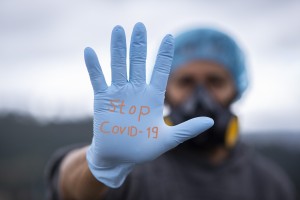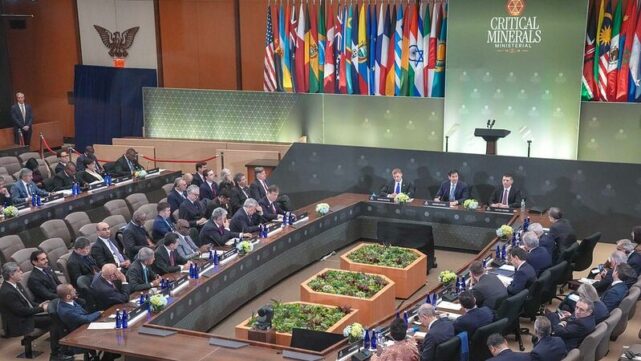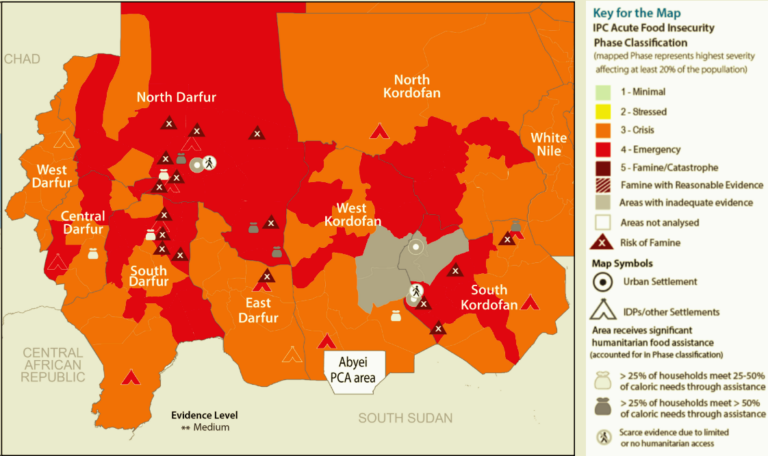
Geneva/Washington D.C.: The heads of the world’s predominant global financing, health and trade agencies have united to urge government leaders to urgently finance a new $50 billion roadmap to accelerate the equitable distribution of health tools to help end the pandemic that has devastated lives and livelihoods for 18 months and also set the foundations for a truly global recovery, as well as enhanced health security.
The Heads of the International Monetary Fund, World Bank Group, World Health Organization and World Trade Organization issued an extraordinary call for financing actions by government leaders to accelerate end to COVID-19 pandemic.
IMF’s Kristalina Georgieva, WHO’s Dr.Tedros Adhanom Ghebreyesus, World Bank’s David Malpass and WTO’s Ngozi Okonjo-Iweala said in a joint statement that governments must act without further delay or risk continued waves and explosive outbreaks of COVID-19 as well as more transmissible and deadly virus variants undermining the global recovery.
Leaders of the four agencies said: “By now it has become abundantly clear there will be no broad-based recovery without an end to the health crisis. Access to vaccination is key to both.”
The joint statement draws on a recent IMF staff analysis, which stated that $50 billion in new investment is needed to increase manufacturing capacity, supply, trade flows, and delivery, which would accelerate the equitable distribution of diagnostics, oxygen, treatments, medical supplies and vaccines. This injection would also give a major boost to economic growth around the world.
“At an estimated $50 billion, it will bring the pandemic to an end faster in the developing world, reduce infections and loss of lives, accelerate the economic recovery, and generate some $9 trillion in additional global output by 2025,” said the leadership.
It echoes economic analysis by the International Chamber of Commerce and the Eurasia Group – both of which make the case for a relatively modest investment by governments in comparison to the trillions spent on national stimulus plans and lost trillions in foregone economic output. But the critical element of this is that it effectively spurs global vaccination and bridges the equity gap.
“Increasing our ambition and vaccinating more people faster: WHO and its COVAX partners have set a goal of vaccinating approximately 30% of the population in all countries by the end of 2021,” said the four leaders. “But this can reach even 40% through other agreements and surge investment, and at least 60% by the first half of 2022.”
Governments are urged to act on the investment opportunity to boost supplies of vaccines, oxygen, tests and treatment. The IMF, WBG, WHO and WTO leaders issued their joint statement as the World Health Assembly drew to a conclusion and a round of G7 meetings were set to start, beginning with a Finance Ministers convening later this week, and following a Global Health Summit co-hosted by the EU and Italy, which chairs the G20.
“To urgently get more shots in arms, doses need to be donated immediately to developing countries synchronized with national vaccine deployment plans, including through COVAX,” said the four leaders. “Cooperation on trade is also needed to ensure free cross-border flows and increasing supplies of raw materials and finished vaccines.”
The IMF, WBG, WHO and WTO leaders later participated in a joint press conference on Tuesday June 1, to outline the new joint roadmap to ending the pandemic and driving a truly global and fast recovery. IMF managing director Georgieva told the press conference that new injection of funds will be critical to increasing the supply of lifesaving medical tools, while
WTO’s director-general Dr. Ngozi Okonjo-Iweala assured that the WTO was doing all it can to ensure the smooth flow of vaccines and raw materials across borders to increase access, while also accelerating negotiations around intellectual property.
#ICYMI: WTO Director-General @NOIweala at a joint @WTO–@WHO–@IMFnews–@WorldBank media briefing on #COVID19 & #VaccinEquity. https://t.co/pr5D4CQ17S pic.twitter.com/NHgtbqkaCF
— WTO (@wto) June 1, 2021
The World Bank president Malpass said his immediate priority was for countries that have sufficient supply to quickly release doses to countries that have vaccination deployment programs. “The World Bank has $12 billion in vaccine financing available now, and more if needed, to help countries buy and distribute COVID-19 vaccines and encourage vaccinations,” he said. He informed that by the end of June, the WB will have approved vaccination operations in over 50 countries. These countries can immediately use vaccines from COVAX, from manufacturers, and from donor countries themselves as soon as they are made available, he said. According to him, it was vital to speed up the supply chain. “We need to shorten the time from the manufacturing of the vaccine to shots in arms. At present, too many doses are waiting to be allocated. They may be stuck in paperwork; sitting in inventory somewhere; or aren’t the type of vaccine the country is able to use. In order to maximize the number of vaccinations, doses need to be matched to country programs as soon as they are manufactured,” he said.
WHO director-general Dr. Ghebreyesus informed that on June 2, 2021, COVAX, co-led by Gavi, CEPI and WHO, alongside key implementation partner UNICEF, aimed to raise critical new funds at it’s Advanced Market Commitment Summit to further diversify its portfolio and buy additional vaccines for low- and lower-middle-income countries.
“Fully financing COVAX and ACT-A is key to ending the increasingly two-track pandemic and I thank the Government of Japan for hosting the AMC summit,” he said.





